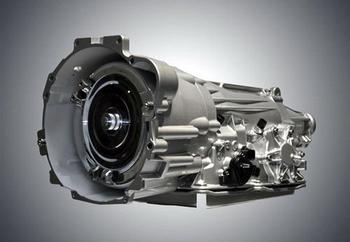Yikyui water well drilling rigs are designed for safety, reliability, and productivity with products to serve all of your drilling needs. Yikyui has a rich history in the water well drilling rig market that spans over 30 years and counting. As water is our most precious resource and the global demand for water increasing each year, Yikyui takes pride in offering solutions to meet this growing demand.
We have a complete line of hydraulic top-head drive drilling rigs, designed for water well drilling and other applications requiring air or mud rotary as well as down-the-hole hammer drilling methods.
Our drills provide ample power and versatility to reach target drilling depths in all types for aquifer / soil conditions and rock formations. Additionally, our rigs are highly mobile, capable of reaching the most remote locations.
Yikyui`s water well rigs come in a full range of pullback (hosting) capability and feature safe and efficient rod handling with some products offering optional hands-free rod loader systems. The rigs are also capable of pulldown for drilling in those more challenging formations. Optional features such as water injection systems, hammer lubricators, mud systems, auxiliary winches, etc. offer flexibility when configuring a rig. We also have the capability to design custom options to better serve the need of our customers.
Innovation is one of our core values and we strive to deliver innovative solutions for our customers that bring value to their operations. With reduced downtime, fuel efficiency, and by providing a safer work environment, Yikyui`s water well drilling rigs help customers grow and sustain their businesses.
Well Drilling Machine,Water Well Drilling Rig,Borehole Drilling Machine, CPTU & In-situ testing Henan YK Prospecting Machinery Co., Ltd , https://www.yikyuirig.com It is understood that on November 26, 2012, the first "China Automotive Transmission Technology Development Seminar" was successfully held. At the meeting, some experts said that the domestic transmission industry is facing a period of rapid transition from manual to automatic. If the industrialization of independent products cannot be achieved quickly, the autonomous automatic transmission industry will be destroyed. Moreover, it is impossible to rely on the introduction of mastering the core technology of the transmission. Only the road of independent innovation can be firmly pursued.
It is understood that on November 26, 2012, the first "China Automotive Transmission Technology Development Seminar" was successfully held. At the meeting, some experts said that the domestic transmission industry is facing a period of rapid transition from manual to automatic. If the industrialization of independent products cannot be achieved quickly, the autonomous automatic transmission industry will be destroyed. Moreover, it is impossible to rely on the introduction of mastering the core technology of the transmission. Only the road of independent innovation can be firmly pursued.
Previously, the person in charge of a self-owned brand automobile research institute had publicly stated that the automatic transmission has always been a major technical bottleneck for domestic auto makers. According to statistics, China's automatic transmissions rely on imports for a long period of time, and the growth rate is significant. In 2001, China’s imports of automatic transmissions were 480 million U.S. dollars. By 2009, this figure had rapidly grown to 5.56 billion U.S. dollars, an increase of more than 11 times. The main reason is that Chinese companies do not have the core technology of automatic transmission and can only be controlled by people. At present, most of the automatic transmissions introduced by China belong to the technologies that are nearly eliminated in foreign countries, while the Chinese-foreign joint ventures and cooperative automatic transmission companies have their core technologies in the hands of foreign counterparts. Even with foreign companies controlled by the Chinese side, China’s independent innovation capability is not strong. Ultimately, the current share of China's own transmission brand market is only 23%. Of these 23%, the vast majority belong to low-end products, and high-end products must all rely on imports.
When the self-owned brand was caught in the crisis of automatic transmission, the localization strategies of multinational companies such as Japan's Aisin, Aida, ZF, Bosch, and BorgWarner in the United States made it even more difficult for independent brands. Although in recent years, autonomous automakers such as Geely and Chery have invested heavily in research and development of automatic transmissions with independent intellectual property rights, some private enterprises and research institutes are also devoting themselves to research and development of automatic transmissions. However, under the influence of many factors such as insufficient funds, decentralized basic technology of transmission, and lack of policies, industrialization difficulties have been difficult to break through.